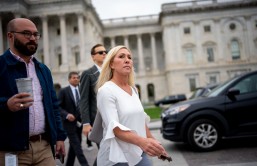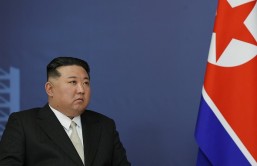
(Photo : Pexels/ Skitterphoto)
The State Department shared that the requirements which were unveiled on Tuesday were designed to send a message to the listed nations’ officials that they need to encourage their citizens to abide by the conditions set by the US government to get their U.S. visas.
The State Department shared that the requirements which were unveiled on Tuesday were designed to send a message to the listed nations' officials that they need to encourage their citizens to abide by the conditions set by the US government to get their U.S. visas.
The State Department also mentioned that they selected countries whose citizens have high rates of overstaying in the United States after their visa expiration.
According to the temporary final rule which is issued by the State Department, consular officials could start requiring applicants for B-1 and B-2 visas who hail from the selected countries to pay a bond, ranging from $5,000, $10,000, or $15,000 based on the six-month pilot program which will start on December 24, Quartz Africa reported.
Based on the rule, the Pilot Program is designed to be applied to citizens of countries with high overstay rates, as it will serve as a diplomatic tool which will encourage foreign governments to take all appropriate actions especially ensuring that their citizens will timely depart the United States after making their temporary visits.
According to CBS News, Of the 23 countries which are subjected to the new rules set by the State Department, 15 of which are African nations, which includes Burkina Faso, Angola, Chad, Burundi, the Democratic Republic of the Congo, Cabo Verde, Djibouti, Eritrea, the Gambia, Guinea-Bissau, Sao Tome, Liberia, Libya, Mauritania, and Principe and Sudan.
Read Also: NYC's First Black Mayor, David Dinkins, Dies at 93
Visa-seekers from countries of Iran, Burma, Afghanistan, Yemen, Laos, Papua New Guinea, Syria, and Bhutan could also be required to pay the said bonds.
According to the State Department, the pilot program will also allow them to gauge their ability in terms of posting, processing, and discharging bonds.
On the other hand, it is still not clear if the incoming Democratic administration of Joe Biden will be changing or suspending the visa bond rules, but Biden has previously vowed to overturn numerous immigration policies set by President Trump, which collectively have restricted avenues for individuals from abroad to come to the U.S., both permanently and temporarily.
Based on the rule on Tuesday, the number of cases which is expected to be affected by the new rules is relatively small since bonds will only be required on visa-seekers from the mentioned nations who have been granted a waiver, which will allow them to enter under the U.S.
Moreover. The Pilot program is not applicable to student visa seekers and immigrants.
According to the rule instructions, consular officers will be requiring a $10,000 bond, unless they were able to determine that it should be $5,000 because other visa applicants would not be able to pay for the standard amount enough while following the set of rules, Vanguard reported.
Officers can also raise the bond according to their assessment as it can raise up to $15,000 if they will estimate that a $10,000 bond would be enough to ensure the petitioner will depart the U.S. soil before the Visa expiration.
Related Article: Tigray Leader Rejects Ethiopia PM's Ultimatum, Says his People are "Ready to Die"








